Updated: April 2024
When you come back home after a trip, particularly if that trip was for several months, it’s easy to fall into what we call reverse culture shock.
Reverse culture shock is the feeling of disconnect with your home after a long time away. It can feel confusing, it can feel overwhelming, and it can feel disorientating.
When we travel, rarely do we think about the effect our trip will have on us after we get back, at least, not beyond the incredible memories and lifelong connections we know we will make.
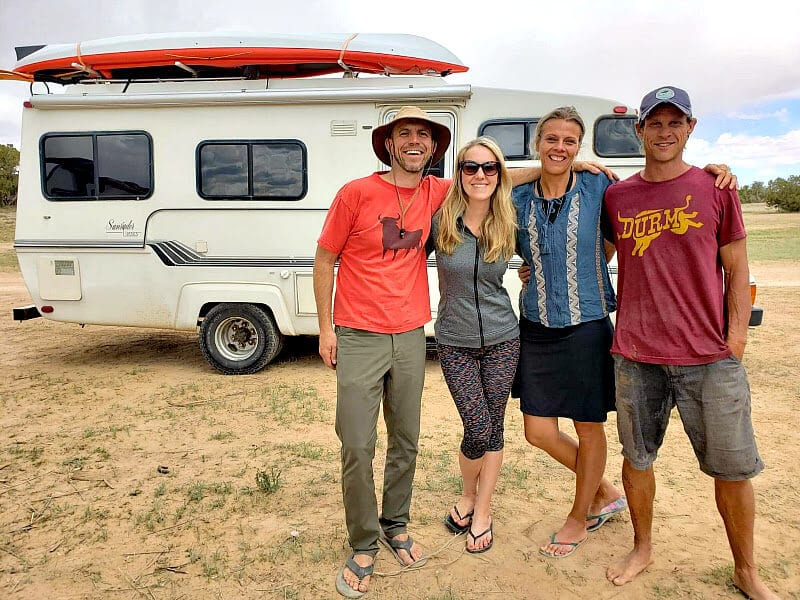
With every adventure, there comes a bit of sacrifice, and we have always done our best to highlight the potential downsides, challenges and pitfalls of travel as well as all the positive outcomes.
In this guide, we wanted to share with you our experience with reverse culture shock and how you can deal with it, so you can be prepared for the feeling when you come back home from your trip.
I’ve written this post to help you understand reserve culture shock, and know how to manage it. Since first publishing this post, I’ve had so many people reach out to thank me for helping them understand what they were going through.
Since I first wrote this guide, I’ve experienced this feeling time and time again, so I recently updated this guide (April 2024) to include more of what I’ve learned over the years.
What Is Reverse Culture Shock?
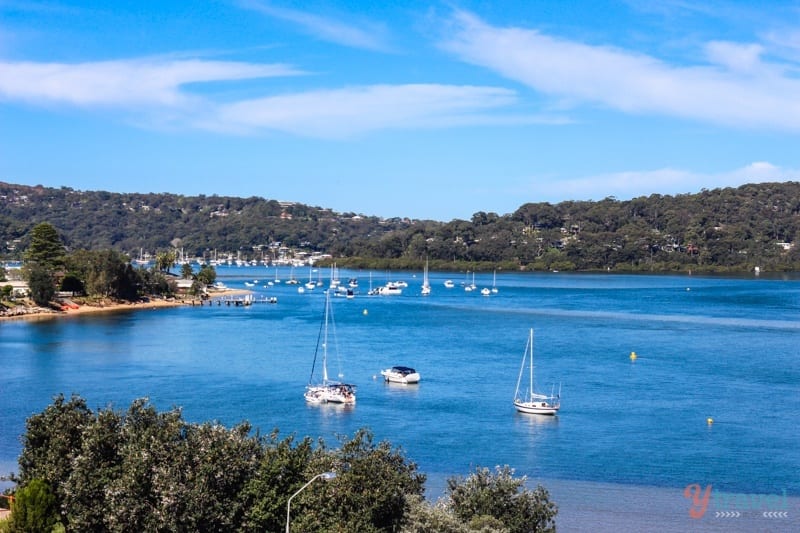
Put simply, reverse culture shock is a feeling of disconnection to your home after spending a period of time away.
You don’t have to have left the country for a long period of time to feel reverse culture shock. It can happen even if you leave for a couple of weeks. Though it’s primarily felt by travelers who have traveled long-term or spent a significant amount of time away from their home.
Those who return home after a trip and feel they don’t fit in anymore, may be suffering from reverse culture shock.
It sounds depressing, but it’s natural and happens to many travelers. In fact, a study by Kansas University found that 70% of students who moved abroad to study, felt reverse culture shock when they went back home.
How Does Reverse Culture Shock Feel?
First, you need to understand how reverse culture shock affects you, in order to find a way to deal with it. I will share our experiences with reverse culture shock and how I manage it further down in this guide.
1. Disconnection and Isolation
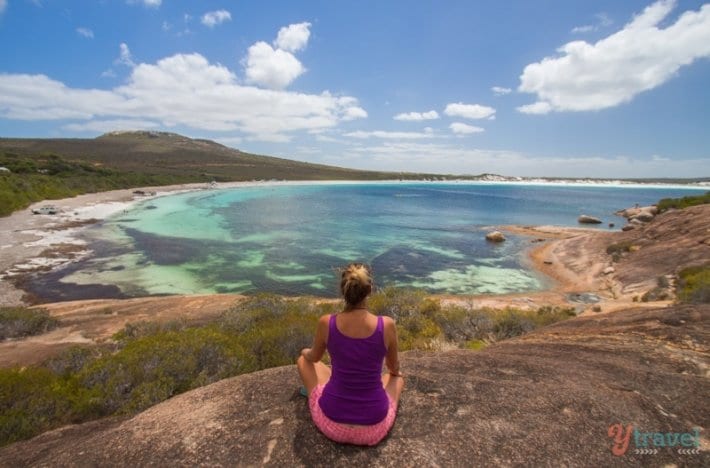
People have expressed to me they felt so isolated, alone, and slightly crazy after returning home from traveling. I’m sure you’ve experienced the “travel blues” before, when after a two week vacation those feelings of high emotions of love, joy, connectedness, and wonder suddenly come to an end.
Imagine experiencing those emotions daily – for years. Imagine the feeling of coming down after a stint of long term travel and living in other countries, where you’ve had endless adventures that put you out of your comfort zone, helped you grow as a person, and elevated your sense of purpose and joy.
Once you return home, the faucet turns off, and you no longer recognize yourself, the world you grew up in, and the people you were once close to.
The people around you won’t understand, since they have stayed behind, but you feel isolated and shut off.
You can no longer connect to your past. The roots and security that typically makes you feel safe suddenly seem unrecognizable. You cannot connect to the present because nothing feels normal or real. The future feels like a shirt flapping on the clothesline in gale force winds.
Caz Makepeace
Does that sound like how you’re feeling? Know this – it does get better.
There are stages you have to move through to process these feelings of loss, grief, and disconnectedness a huge change like this brings.
One thing I know you learned from your travels: humans are amazing at adapting.
Culture Shock
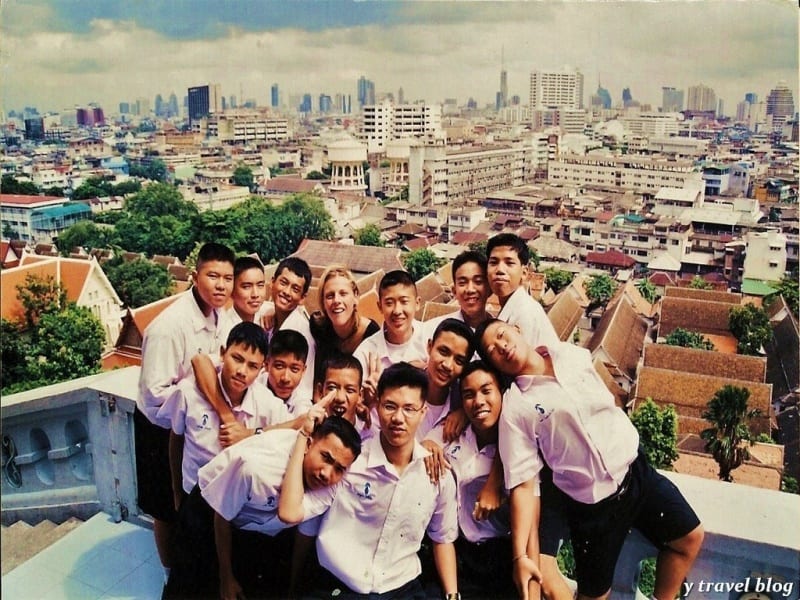
Culture shock is when you first immerse yourself into a new culture and you find it hard to adjust to it. It’s typically experienced more when you live in a foreign country, as opposed to just traveling through.
Living in another country gives you time to get to know it and discover how you can exist within it. Adaptation is the letting go of what you thought was true and right to accept, understand, and even take on something different.
You move through this weird process of falling in love with the new culture to slowly forget about all the things that initially shocked you.
If you know what it is, you’ll start to accept and understand the very wise adage – it’s not better or worse, it’s just different.
Soon with that acceptance and open-mindedness you move out of culture shock and into a wonderful world of embracing and celebrating the new.
Stick with it because on the other side lies a better you and a more diversely, wonderful world.

I was filled with frustration teaching in Bangkok at “how they didn’t get it” for many months. Many years later, I found myself sitting in the principal’s office at my new school in North Carolina with tears streaming down my face, unable to comprehend how the teaching culture was so different to what I was used to.
Culture shock can strike wherever and whenever.
You can feel culture shock when you come back to your home, too.
Are you kidding me? I know my own culture, what is there to be shocked about?
Well, things change and times move on. Over a period of years, your home country could have gone through a recession and this could mean your money doesn’t go as far, a new TV show is popular, people are raving over new restaurants, TikTok becomes a thing, Motley Crue have split up and got back together ten times, and there’s a whole new urban development where the old school used to be.
Things don’t stay the same when you leave. You change, and the places and the people you leave behind will change too.
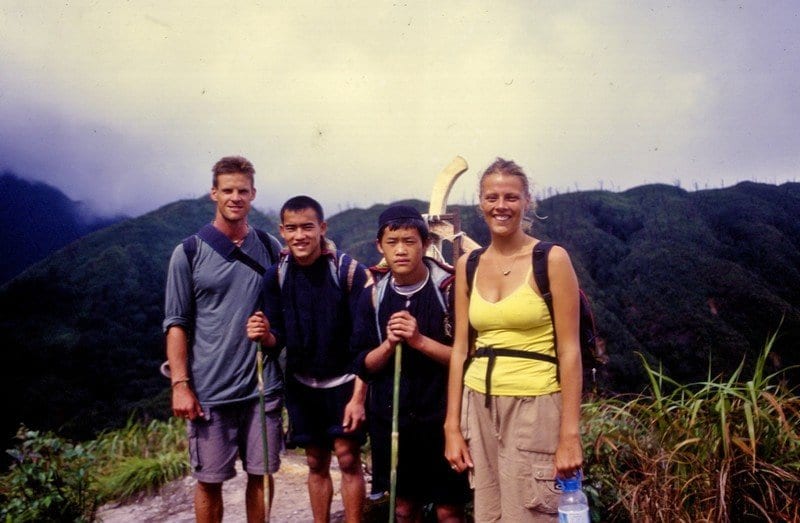
When I first came home to Australia in 1999 after living abroad for three years, I experienced little reverse culture shock.
I returned home at the same time as many of my friends who had also lived abroad, and I met Craig soon after. One month of celebration moved to another, which safely glided me past the very difficult transition stage.
When Craig and I went on a five year honeymoon, living in several countries and traveling around the world. When we returned home in 2006, and the proverbial hit the fan.
We went through reverse culture shock, not knowing what it was, instead thinking I was in a state of complete misalignment with the world around me, and completely crazy and alone.
Now I understand that it’s just a period of change and adjustment.
The Stages of Reverse Culture Shock
Knowing about reverse culture shock and the stages you need to move through to process this huge change and adapt is important for being able to overcome it.
Now I hope I can prepare you, or at least help you understand, just what the hell is happening to you.
So, let’s look at these stages of reverse culture shock in relation to the stages of culture shock. They are the same, it’s just one is experienced in a foreign land, and one is in your home country.
1. Honeymoon Stage

This is the utter excitement and euphoria you feel upon return home. You get to celebrate with your family and friends again, and you begin to feel a sense of nostalgia.
“Oh and look my favourite Thai restaurant is still open“, and “My God look how beautiful the beach is.”
There’s always Vegemite in your cupboard, the kookaburras sing to you each morning, and you can’t stop saying “aren’t Australians just so friendly?”
The first stage of being home is a time of reconnecting bliss. How long it lasts depends on how excited you were in the first place to come home.
If you were dragging your feet, I think you could move out of this stage in a matter of days, or even hours! Typically it will be for a few weeks to a month.
As with all honeymoons, they eventually end, (even if you can stretch them out for 5 years) and end in a big way.
2. Transition Period (Also known as ‘The Emotional Wig Out’ stage)

Mood swings, foul language, unrest, frustration, anger, depression, alienation – these feelings of helplessness come in undulating waves so bad you feel sea sick.
You scratch desperately at the wall to find some sort of a switch to light up the darkness, but the blackness prevails.
All of a sudden you hate everything about being back home and all you do is complain. You find yourself saying things like:
- Back in Thailand this never would have happened…
- Ugh, why do people care so much about this?…
- I hate this about Australia..
- This is so frustrating…
- God Australia your internet is so F#### crap!!
- Where’s Trader Joes when you need it?
- I just wish I could be lying in a hammock having a beer in Laos.
- How did I go from jungle trekking in Bukkittingi to riding the train to the office in the concrete jungle?
On and on the voices plague you. You have become an unrecognizable monster deeply set in shock and you start to think more negatively about the world, when you used to be a positive and upbeat person.
Don’t worry, you’re not a negative person, you’re just going through a period of change.
3. Readjustment Stage

After about 6 months of being home, you will have started to readjust. How long it actually takes depends on you and how prepared you are to deal with the onslaught of turbulent emotions that are coming.
Coming home after being away for so long is a massive readjustment, bigger than you will ever realize until you go through it.
Don’t forget the life of your travels, but don’t hold on too tightly to them either; that is holding onto the past, which is never a good thing because life doesn’t exist there.
It’s time to adapt, create a new life path, and put into good use all you learned along your travel journey.
You have to find your place once again. You may discover your place is somewhere else and that is fine. You might discover you are happy to be home and that is fine too.
Just know that the time will come when you finally feel like you fit in again.
How To Deal With Reverse Culture Shock
Below is my tool kit for dealing with reverse-culture-shock. There is no right or wrong way to deal with it, and everyone has different techniques.
Make sure you read our comment section to see what tips other travelers have shared on the topic. For now, here’s what I do…
1. Understand you are not the same
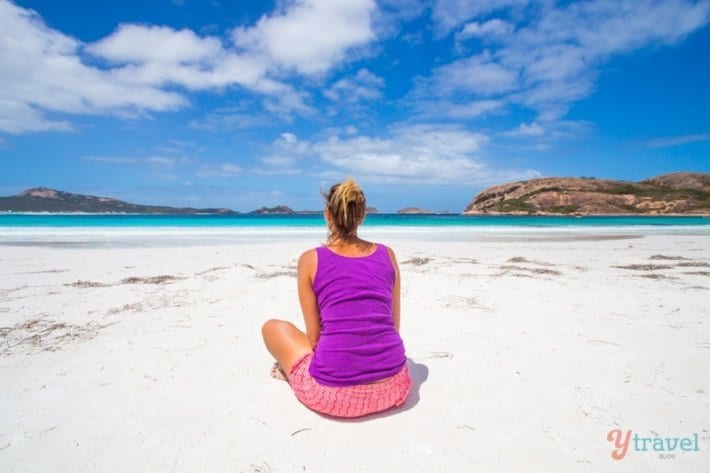
It’s not that everything around you has changed, or that things haven’t even changed slightly, it is just that you have changed dramatically.
You are returning to a place where people expect you to be the same as when you left, but you’re not, and it’s easy to feel frustrated that people don’t recognise that.
Every day you are faced with confusion and pressure. Not to mention there is always that feeling of not being accepted for being the new you.
People want you to be who you once were and you CAN’T. This brings with it a lot of emotions, from guilt to shame to fristration. What tends to happen a lot of the time is that you hide away, so you can be the real you in private; the YOU you like to be now.
The Antidote
- Accept that you are not the same. You see things with different eyes and people may not recognize this anymore. It’s okay. Remain true to who you are. And if it means that some friendships change as a result then so be it. Things change, it is the nature of life.
- Spend time with those who accept the new you and start making new friends. We joined the Sydney Travel Massive group, which is full of travelers who understand us. It always feels comfortable and easy to be with them. I still enjoy hanging out with my closest friends, but it’s nice to be a different me with others as well.
2. Understand when people don’t seem interested, they just can’t relate
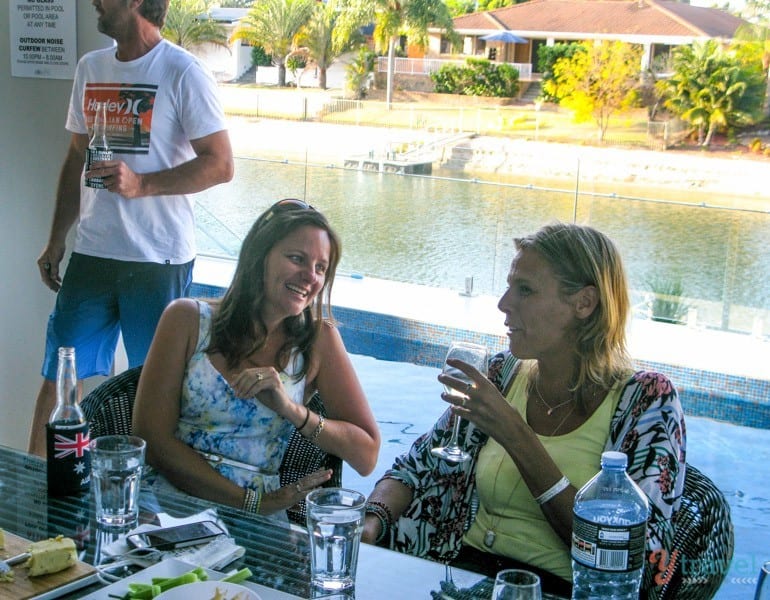
You see the eyes glaze over and the look on peoples’ faces when you begin to talk about your life overseas, until eventually you learn just to shut up and do your best to join in their conversations.
This hurts.
You feel as if they’re not interested in your life and who you are now. They may even feel as if you are big noting your life, and so look upon you with disdain.
You are not. You are just sharing your life as it has been for the last couple of years.
The problem is they just can’t relate. Things have gone along a different path for them, they might not have experienced as much in the time you’ve been away, or things may not have changed much for them. They might even be jealous.
This is not your problem.
What else can you say? You can’t make your past go away, and you sure as heck shouldn’t feel guilty about all the experiences you’ve had. Why would you? It was a joyful, meaningful past.
Your memories, your thoughts and beliefs are now connected to the experiences you had on the road. This only leads you to feel more out of place and more frustrated with being home.
Antidote
- Know they are not being rude, they just can’t relate. Understand that most of the time those you are conversing with have little understanding or connection with you have done. They may be shutting off because they don’t know what to say or how to relate to you anymore.
- Don’t make all of your conversations about your travels, but don’t completely shut it off either. It is who you are and its important to you. You might even want to let those know that this is important and it hurts you when they don’t act interested.
- Take time to find those who have traveled like you and share your stories with them. They get it and most of the time will delight in roaming down memory lane with you.
- Make sure you spend time with your closest friends laughing and reminiscing about special times with them. You will feel wonderful and it will remind you what is so great about those who you chose to leave behind for long periods of time. It will help them to realize that just because you lef, does not mean you still don’t love and cherish them.
3. Understand there are some things about your culture you won’t like
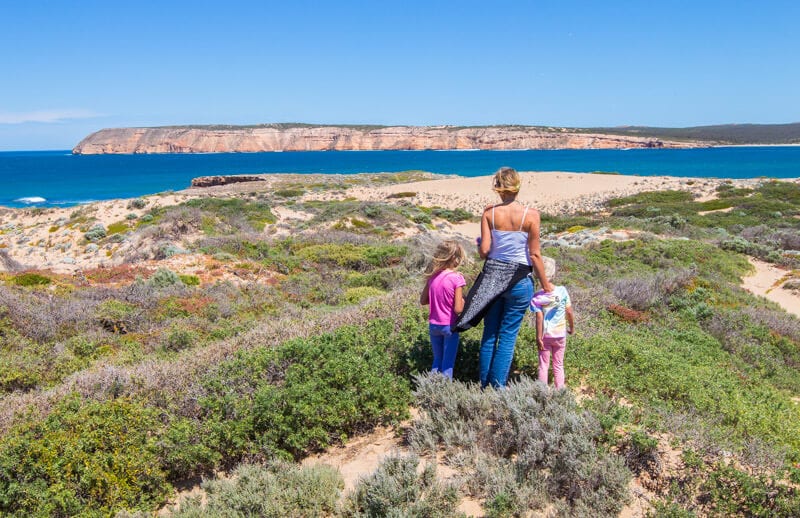
I know what you’re thinking; “TRAITOR!!!!“. How could you not like the place you grew up in? We’re raised to think that we should be proud of where we’re from and your mind screams guilt with every negative thought you feel about your own country.
You just can’t help it. On your travels, you may have discovered other ways that you liked better or think worked better.
The more you travel, the more cultures you connect with, the more your values change and you see the world differently.
Then you have to try and explain that to others who can only agree with one thing.
Antidote
- Understand that people have different values. Don’t try to change or force others to see the world the way you do now. This isn’t going to happen. The lessons you learned are from your experience, and everyone has to go on their own path of discovery.
- Find things you love. It’s easy to see the pitfalls in your home after coming back, so make a list of the things you love. It could be as simple as “I miss having a kitchen and not eating out all the time” or “I miss being by the ocean again.” Look for those things you love about your country and focus on that. I try to get to the beach as often as I can as I love Australian beaches and it helps me to forget that bloody internet speed.
- Repeat the mantra “Not better or worse, just different.” It is okay to appreciate other ways more, just don’t try to fight the old ways. You can’t change the god damn internet speed, so stop wishing you were back in the land where it is 21st century speed. Go get yourself a cuppa, by the time you return the page should have loaded.
- Try to adapt the old things you don’t like into new. For example, I have been struggling with having to go back to a traditional Christmas, I liked doing my own thing. So, I am doing my best to make it more of a joyful occasion by attending the Carols in the Domain and having our own private time as a family during the day.
4. You are not travelling anymore, but it’s not the end of your travels

The hardest thing about coming home is slipping back into the mundane where nothing is new and everything is the same.
Wrong Wrong Wrong.
There is plenty of newness in your home town or country, even after a long time abroad, you just have to look at it with new eyes. Many people remain trapped in the idea that their travels are over, almost as if life is itself.
I’ll put my hand up to this one when we returned home in 2006. I felt shut off from life itself. It felt like nothing could ever fulfill me like travel did.
Not only did I not recognize myself anymore in my home country, but I could not envision a life without travel. I was lost and confused and felt so isolated and trapped.
I still feel that almost daily, but I know how to work through it and this travel blog really helps a lot.
Antidote
- Start travelling in your own area. This was the biggest thing this time that helped me to slay the reverse culture shock beast. Every weekend we jumped on a train down to Sydney to explore, we did the seven bridges walk, hung out at Terrigal Beach, went moon walking, and did adventures on the Gold Coast. This helped me to see the beauty of Australia again and to breathe that travel excitement and anticipation.
- Find a way to put into practice all you have learned from your travels. You may start a travel blog or write a book to share your experiences, or you may even start a new career. Start new hobbies, and meet new people — anything that will bring back that sense of travel for you.
5. Reconnect with people slowly
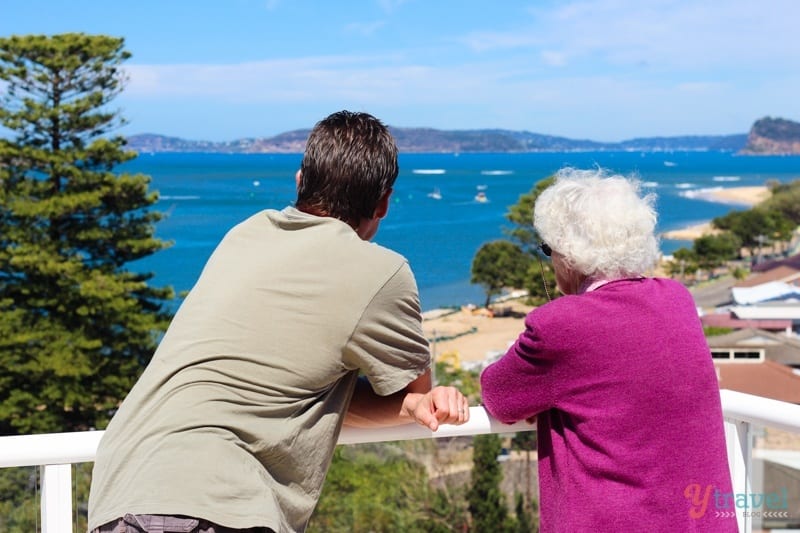
Of course, everyone wants to see you, and it’s great to reconnect with loved ones. It can also be very exhausting, especially because you are not used to it.
Go slow.
You have just returned and everyone wants to see you, and when they do there are the eternal questions about what you are doing next.
Next?
I’m still trying to grasp being in a different time zone, let alone come up with future plans.
You’ve spent the last however many years, either on your own or with your partner, only socializing with other like minded travellers, usually at a time and place that agrees with you.
Suddenly there are people everywhere demanding of your attention. There are birthday parties to attend, christenings, weddings, and catch up dinners.
You feel stretched in all directions, and really you just want to crawl into the nearest hammock and shut the activity out. It is extremely overwhelming.
Antidote
- Take the meet ups with everyone slowly. We always came home in a mad rush as we we would be on the road again shortly. This time we were in no hurry to see anyone. This was not because we didn’t want to but if we did we knew it would set us back months. So we took it slow and steady. I didn’t see some of my friends for a month until I returned. You don’t need to go to every event. Take a step back and take some time out.
- Organize one event at one destination and tell everyone you know to meet you there. This means you get to see everyone, but you are not running to a million different parties to catch up with a million different people. Make them come to you. Remember they only have one person to catch up with you have hundreds. You have to be selfish here or Reverse Culture Shock will beat you to a pulp.
Our Experience With Reverse Culture Shock

We are no strangers to reverse culture shock, and have felt it several times in our lives. The most notable time was when we returned home in Australia after a two-year stint living in the USA.
My heart was broken, at the time, because it felt like we could not make our dream of living in Raleigh a reality, and had to move back home to Australia for good.
The time before, in 2006, when Craig and I returned home after a five-year honeymoon traveling the world, we had no idea reverse culture shock existed, and it nearly broke us.
I’ve realized over the years that reverse culture shock is a temporary feeling and can be overcome.
I hope this guide helped you understand what reverse culture shock is, how to spot it, and how to overcome it.
Pin To Save To Pinterest
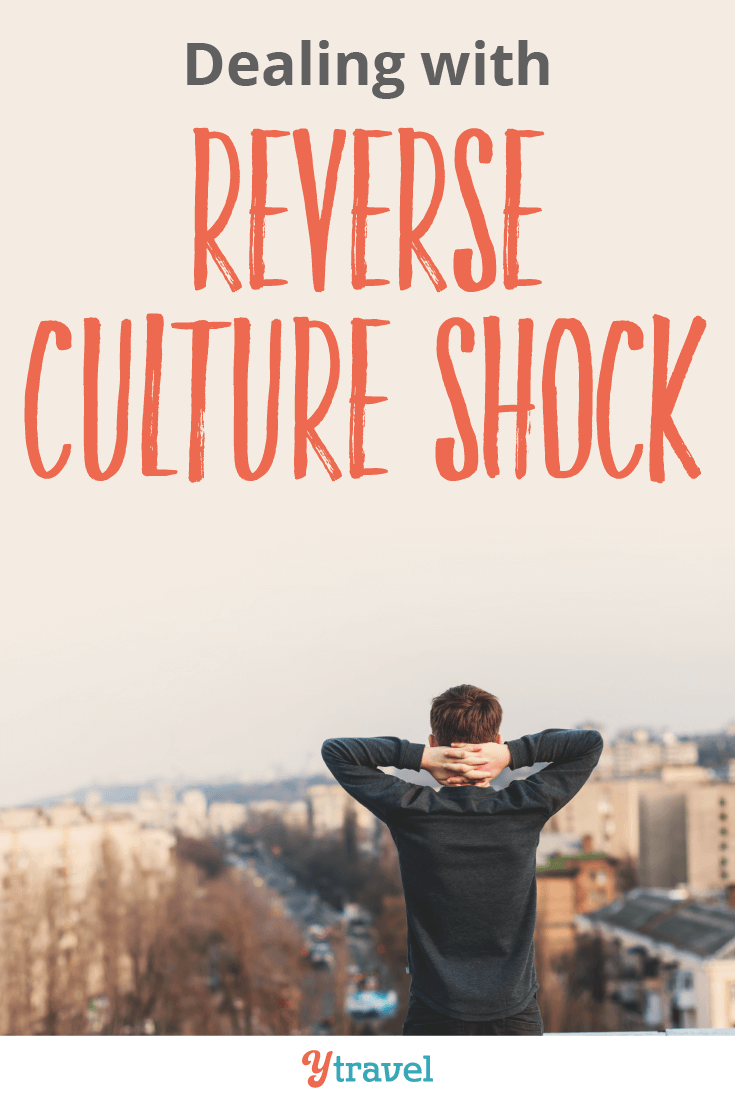
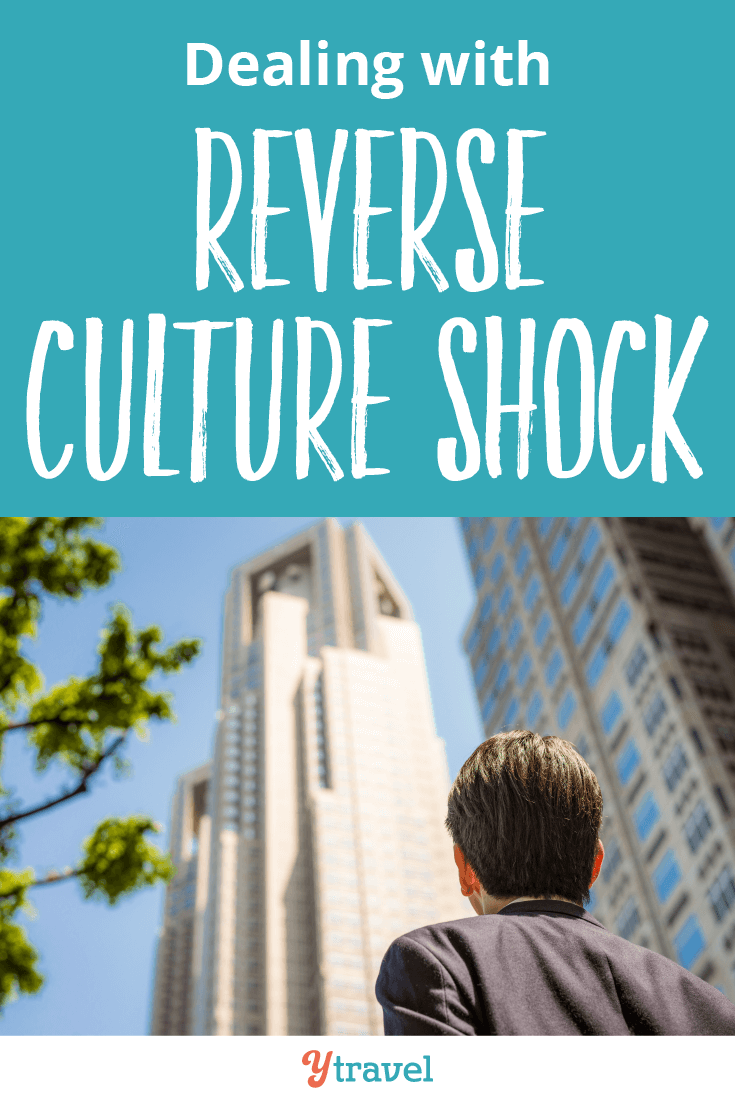
What have been your experiences in dealing with reverse culture shock? Let us know in the comments!